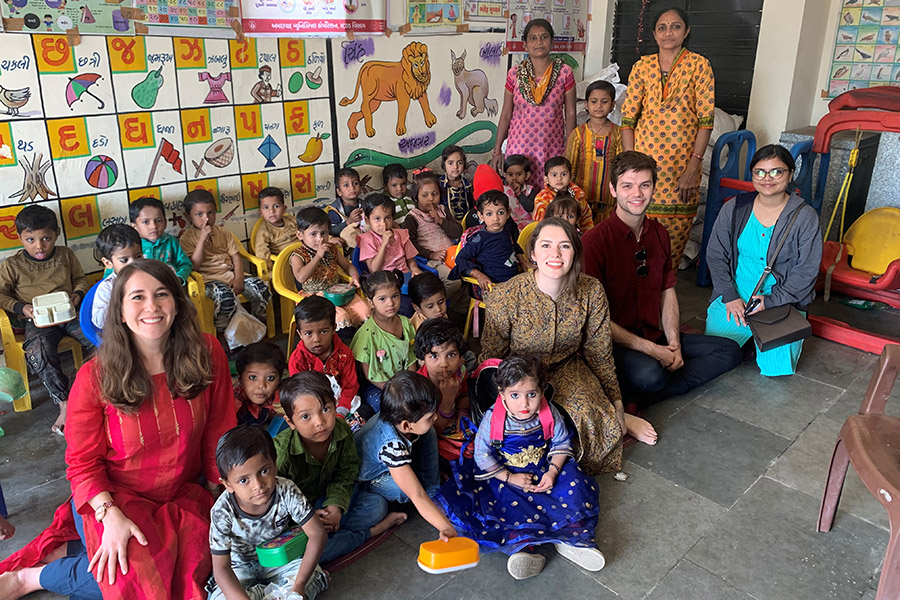Providing Evidence-Based Solutions for Combating Malnutrition in India

Over the 2020 winter break, a team of second-year students studying international development traveled to India to conduct analyses on the take-home rations (THR) program in the states of Gujarat and Rajasthan. The team is working with Sight and Life in order to create a policy and strategy compendium on THR for the Government of India. The compendium will provide states with insights on making their THR implementations more nutritious, cost-effective and sustainable for children as well pregnant and lactating women.
In addition to the compendium, the team is responsible for analyzing two distinct THR supply-chain models: a centralized model in the State of Gujarat and a decentralized model in the State of Rajasthan. These case studies, along with insights from the compendium, will be used to develop a time-bound action plan and roadmap for ICDS officials to inform national government policy as well as develop state-level strategies on THR implementation. To that end, the compendium will be instrumental in providing states with a single synthesized reference for THR data and material. Moreover, state officials will be able to draw from the lessons learned in our case studies as well as implement the replicable successes outlined in our action-plan and roadmap.
In spite of jetlag, the team hit the ground running as soon as they arrived in India. They spent the first part of their fieldwork meeting with various stakeholders and government officials in Delhi in order to gain a holistic overview of the THR program, including perceptions, shortcomings and suggestions for improvement. In preparation for their visits to the States of Gujarat and Rajasthan, the students purchased kurtas, as their client explained that the communities and organizations they planned to meet were very traditional. They had a lot of fun picking out different fabrics and designs!
The team learned the true meaning of “rolling with the punches” after a minor change in fieldwork plans due to Master Chef India. The show was being filmed on the premises of the THR production facilities in Gujarat, forcing the team to shift around their schedule. Sadly, they were not invited. Nonetheless, they were eventually able to carry out enriching interviews with the centralized producer of THR in Gujarat as well as visit the various factories it operated (including a chocolate factory!). They spent the latter half of their time in Gujarat conducting interviews and focus groups in child care centers where THR are distributed and they gained valuable insights from beneficiaries as well as child-care workers. Finally, the team traveled to Rajasthan to interview stakeholders from JVS Foods, which previously provided THR to the state through a centralized tender before the state’s transition to a decentralized model. They spent the last day in Rajasthan at a child-care center interviewing beneficiaries and workers to better understand the processes of a decentralized model.
Although India’s THR program faces many challenges and shortcomings, the team feels confident in the successes they uncovered during their visits to Gujarat and Rajasthan. They plan to leverage this information as they continue to build upon the foundations of their compendium in order to deliver relevant proof of concepts and an actionable roadmap for state officials. Most of all, they were inspired by the dedicated practitioners, workers, and beneficiaries they met during their trip and hope to improve their overall wellbeing.